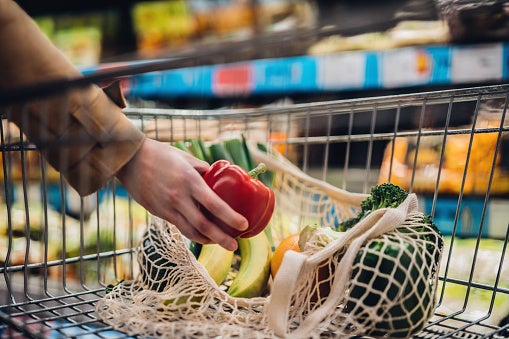Healthy eating got more expensive during Covid pandemic, study finds
Labour shortages blamed for rising prices, reports Emily Atkinson

The cost of eating healthily soared significantly during the Covid pandemic, a study has found.
A group of US scientists were keen to detemine whether the effects of global crises on domestic grocery bills were as acute beyond its borders. And recent research published in the journal Nature Food proved this to be a global phenomenon.
The project, called Food Prices for Nutrition, saw professor William Masters at the Friedman School of Nutrition Science and Policy at Tufts University in Massachusetts and a group of graduate students gather data on retail prices for diverse food groups around the world.
Prof Masters, who also works in the department of economics at Tufts, said: “We used big-data techniques to look at prices for these diverse retail food items, across each food group needed in a balanced diet, in as many countries as possible, to understand changes in access to a healthy diet that might be caused by the spread of Covid-19 and other factors.”
In order to measure the links between surging food prices and the spread of coronavirus, the team comapred the retail prices of eight food groups and overall consumer prices in 180 countries between January 2019 and June 2021.
Researchers were careful to distinguish between the agricultural commodity values reported in the media and the retail prices that consumers pay.
“Bulk rates for wholesale items, like 10,000 pounds of wheat on a boat, are not what people pay when they buy a five-pound bag of flour or a half-pound loaf of bread at their local shop,” Prof Masters said.
The team found that during each country’s successive waves of Covid-19, national consumer price indexes tracking the average prices of all food far surpassed pre-pandemic levels.
Average prices for specific food groups recommended for a healthy diet, such fruits, vegetables, nuts, seeds, pulses, dairy, eggs, and meats, rose in proportion to coronavirus cases and deaths.
And countries that suffered more cases and deaths, like the US, saw some of the greatest increases in retail food prices, while countries reporting lower numbers, such as France, Australia, and Japan, saw less significant surges.
“In places like the US, letting the pandemic run was not just devastating to people who lost family members—it was also very expensive for everyone else,” Prof Masters said.
“In contrast, countries that got lucky or had better public health responses had less illness among workers, which we think helped keep food costs low.”
According to the researchers, the the timing of food price changes in each country suggest that costs were affected by labuor shortages due to illness, in particular for products whose production and distribution require indoor face-to-face contact, such as greenhouses and food processing centres.
“In the US, our biggest outbreaks among food system workers were in the meatpacking sector,” Prof Masters said.
“The virus spread faster because plants stayed open at the height of the pandemic, with hundreds of workers in one building, often standing shoulder-to-shoulder along the production line.”
The squeeze felt as a result of soaring food prices is of particular detriment to lower income households as food makes up a larger portion of their total spending, in some cases up to 60 to 80 per cent, Prof Masters said.
“When food prices rise, diet quality is downgraded, and the household’s spending on education, health, and so forth all gets squeezed in order to meet immediate calorie needs,” he added.
“Families often need outside help to make it through the crisis and recover quickly, to get back on a path of sustainable growth.”
And resultant long-term health consequences are most likely to hit woman and children the hardest.
Prof Masters added: “When we look at outcomes, children who are infants at times of scarcity are worse off forever.
“Parents want to feed their children well, but food price spikes like those caused by Covid-19 or Russia’s invasion of Ukraine may make that impossible.”
He said that government’s must continue to make interventions into stemming the spread of coronavirus in order to keep supplies flowing.
The academic added: “When countries fail to control disease, food and other things become more difficult to get. Public health is an investment in the economy.”






Join our commenting forum
Join thought-provoking conversations, follow other Independent readers and see their replies
Comments